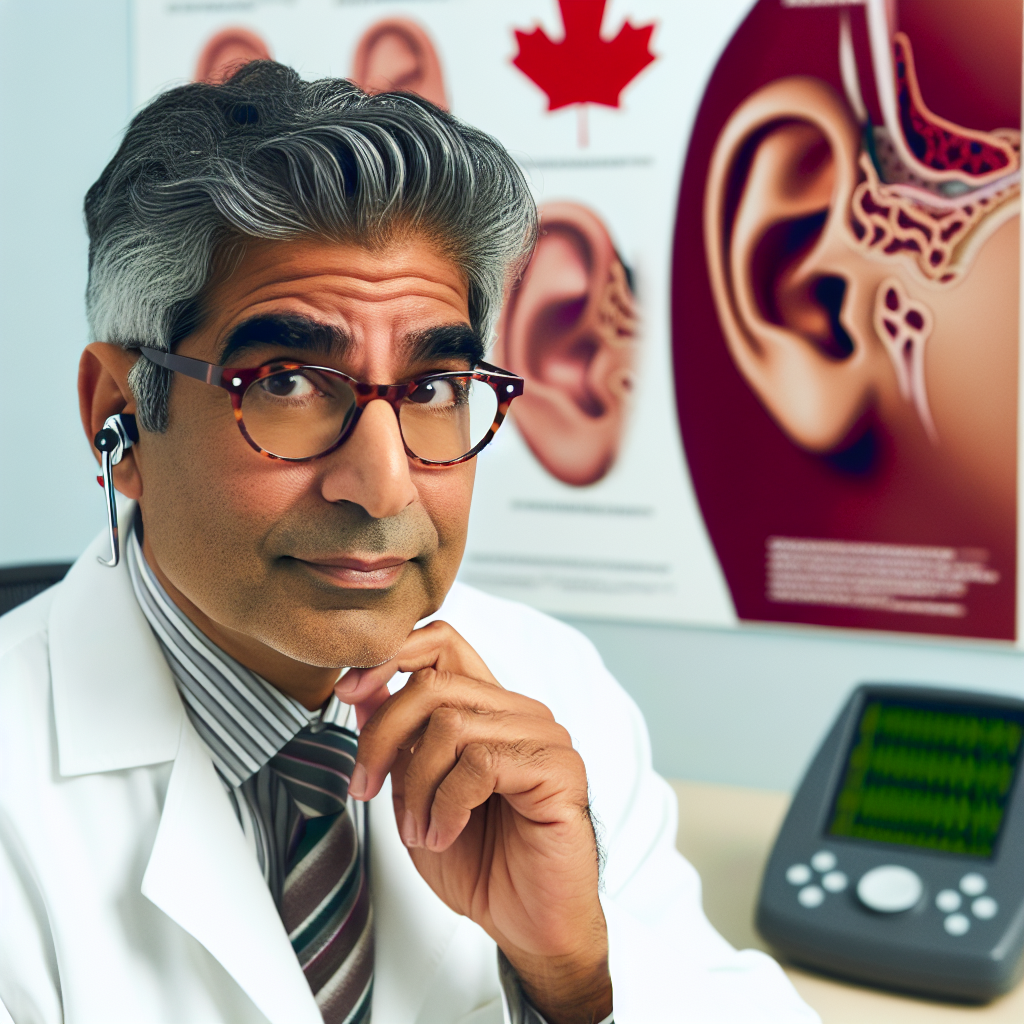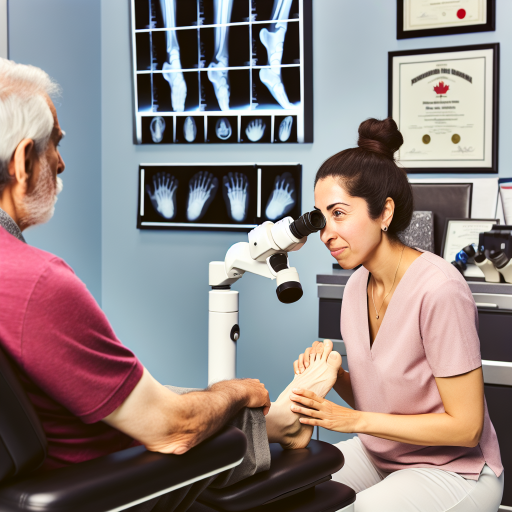What Types of Hearing Tests Will I Undergo During My Appointment
Types of Hearing Tests
Your audiologist uses multiple tests to assess your hearing ability.
These include pure-tone audiometry, speech audiometry, and tympanometry.
Each test serves a specific purpose in evaluating your hearing health.
Pure-Tone Audiometry
This test measures your ability to hear various tones at different frequencies.
You will wear headphones and indicate when you hear sounds.
The results will identify hearing thresholds across multiple pitches.
Speech Audiometry
Speech audiometry evaluates how well you understand spoken words.
The audiologist will present words at different volumes.
You will repeat the words back to assess recognition levels.
Tympanometry
Tympanometry tests the movement of your eardrum.
This test helps identify problems within the middle ear.
You will feel a pressure change in your ear during this assessment.
Additional Tests
Other tests may include auditory brainstem responses and otoacoustic emissions.
These tests assess how well sound travels through the auditory pathway.
They provide valuable insight into your overall auditory system health.
What to Expect During Your Appointment
Arrive prepared with questions and any necessary medical information.
The audiologist will guide you through each test and its purpose.
Expect a welcoming environment, where your comfort is a priority.
Understanding My Hearing Test Results
Overview of Hearing Test Results
Your audiologist will provide a detailed report on your hearing test results.
This report outlines the types of tests performed and their outcomes.
Understanding these results is crucial for planning your treatment.
Types of Hearing Tests
Various tests measure different aspects of your hearing ability.
Pure-tone audiometry evaluates the quietest sounds you can hear.
Immittance testing assesses the function of your middle ear.
Speech audiometry measures your capacity to understand speech.
Unlock Your Career Potential
Visualize a clear path to success with our tailored Career Consulting service. Personalized insights in just 1-3 days.
Get StartedInterpreting the Results
The results will be shown in an audiogram format.
This graph shows your hearing sensitivity at different frequencies.
Your audiologist will help you understand any symbols used.
Significance of the Findings
Understanding your results can reveal the type of hearing loss.
Types include conductive, sensorineural, and mixed hearing loss.
Each type indicates different potential treatments or interventions.
Next Steps After Receiving Results
It is important to discuss your results with your audiologist.
They will recommend appropriate treatment options based on your results.
Possible options may include hearing aids, therapy, or surgery.
Seeking Clarification
If any part of the report is unclear, ask questions freely.
Your audiologist is there to help you understand everything.
It’s essential that you feel comfortable with your diagnosis and treatment.
Treatment Options for Hearing Loss
Understanding Your Hearing Loss
Each individual’s hearing loss is unique and requires careful assessment.
Start by discussing your specific type of hearing loss with your audiologist.
This will help determine the best treatment options for you.
Hearing Aids
Hearing aids are the most common treatment for hearing loss.
These devices amplify sound, making it easier to hear conversations.
Your audiologist can help you choose the right hearing aid for your needs.
There are various styles, including behind-the-ear and in-the-ear options.
Cochlear Implants
For some individuals, cochlear implants may be an effective solution.
These devices bypass damaged hair cells in the cochlea.
They convert sound into electrical signals for the brain to process.
Discuss candidacy criteria for cochlear implants with your audiologist.
Assistive Listening Devices
Consider assistive listening devices to enhance your hearing experience.
These devices work in conjunction with hearing aids and cochlear implants.
Options include FM systems, infrared systems, and loop systems.
They can improve sound clarity in specific situations, like lectures or theaters.
Custom Treatment Plans
Your audiologist can develop a personalized treatment plan.
This plan will depend on your lifestyle and specific hearing needs.
Regular follow-up appointments are essential for monitoring progress.
Adjustments can be made to optimize your hearing experience.
Additional Therapies
Audiologists may recommend other therapies based on your condition.
Tinnitus retraining therapy can help those with tinnitus issues.
Auditory training can also assist in improving sound recognition.
Explore all options with your audiologist for the best outcomes.
Discover More: Common Misconceptions About the Dental Profession
How Often Should I Have My Hearing Checked as I Age
The Importance of Regular Hearing Checks
Regular hearing checks become increasingly important as you age.
Hearing often declines gradually, making early detection crucial.
Monitoring changes allows for timely intervention and management.
Recommended Frequency of Hearing Tests
Most audiologists recommend annual hearing tests for adults over 60.
However, more frequent checks are advised for those experiencing issues.
Those with a history of hearing loss in their family should also test regularly.
Factors Influencing Hearing Check Frequency
Several factors influence how often you should see an audiologist.
- Your age plays a significant role in the frequency of visits.
- Your overall health can affect your hearing, requiring more checks.
- Exposure to loud environments or noises necessitates increased testing.
Signs That Indicate You Should See an Audiologist
Pay attention to signs that require a hearing evaluation.
Difficulty understanding conversations, especially in noisy settings, is one cue.
Experiencing ringing in your ears is another important signal.
If you notice a sudden change in your hearing, seek help immediately.
Benefits of Regular Hearing Assessment
Regular assessments help maintain communication quality and social interactions.
Audiologists can recommend hearing aids or other devices when necessary.
They can also suggest strategies for protecting your hearing.
Lastly, staying informed about your hearing health empowers more proactive decisions.
See Related Content: How Kinesiology Supports Mental and Physical Wellness
Benefits and Drawbacks of Different Hearing Aids
Overview of Hearing Aid Types
Hearing aids come in various types and styles.
Each type offers unique features and benefits.
Understanding these differences aids in making an informed decision.
Behind-the-Ear (BTE) Hearing Aids
BTE aids are placed behind the ear, connecting to a custom ear mold.
They are suitable for a range of hearing loss levels.
One major benefit is their durability and ease of handling.
However, their size may be less discreet compared to other types.
In-the-Ear (ITE) Hearing Aids
ITE hearing aids fit directly in the outer ear canal.
They offer a more discreet option than BTE models.
These aids provide good sound quality and are easier to insert.
Nonetheless, they can be more prone to damage from earwax.
Completely-in-Canal (CIC) Hearing Aids
CIC hearing aids fit completely within the ear canal.
This design makes them one of the most discreet options available.
Users often appreciate their cosmetic appeal and comfort.
However, their small size can limit battery life and features.
Receiver-in-Canal (RIC) Hearing Aids
RIC hearing aids feature a small case behind the ear with a receiver in the canal.
This design provides a natural sound experience and comfort.
They are less visible than traditional BTE models.
Nevertheless, they may not be suitable for severe hearing loss cases.
Cochlear Implants
Cochlear implants are a surgical alternative for severe hearing loss.
They directly stimulate the auditory nerve, providing sound sensations.
A key benefit is the potential to improve speech understanding.
However, they involve a surgical procedure and extensive rehabilitation.
Considerations for Choosing Hearing Aids
When selecting hearing aids, consider your lifestyle and preferences.
Your level of hearing loss plays a crucial role in the decision.
Also, budget constraints may influence your choice.
Consulting with an audiologist can clarify suitable options.
Uncover the Details: The Growing Demand for Dentists Across Canada

How can I better protect my hearing in everyday situations?
Understanding Noise Exposure
Noise exposure can significantly impact your hearing health.
It is essential to recognize loud environments that pose risks.
Common sources of noise include traffic, concerts, and construction sites.
Using Protective Gear
Wearing hearing protection can reduce noise exposure effectively.
Consider using earplugs or earmuffs in loud settings.
Custom-fitted earplugs offer enhanced comfort and protection.
Managing Volume Levels
Lowering the volume on personal devices protects your ears.
Use the 60/60 rule: listen at 60% volume for 60 minutes.
Take regular breaks from headphones or earbuds to rest your ears.
Maintaining Distance from Noise Sources
Distance can cushion the impact of loud sounds.
Try to stay away from speakers at concerts or loud events.
Position yourself at a farther distance from noisy tools or machinery.
Communicating with Others
Discuss hearing protection with friends and family.
Encourage loved ones to join you in protecting their hearing.
Share tips and resources for better hearing health.
Regular Hearing Check-Ups
Schedule regular appointments with your audiologist.
Early detection of hearing loss can lead to better outcomes.
Your audiologist can advise personalized strategies for protection.
Learn More: The Path to Dentistry: Education and Licensing Guide
What are the Signs that I Should Return for a Follow-up Appointment?
Changes in Hearing
If you notice a sudden change in your hearing, it may be time to see your audiologist.
For example, if sounds seem muffled or distorted, you should schedule a visit.
Additionally, increased difficulty understanding speech indicates a need for assessment.
Issues with Hearing Aids
If you’re using hearing aids, you might experience issues that warrant a follow-up.
For instance, if your hearing aids are not amplifying sounds properly, consult your audiologist.
Similarly, if you notice feedback, buzzing, or discomfort, it’s essential to seek help.
New Symptoms
Watch for any new symptoms related to your auditory health.
Symptoms like ringing in the ears, also known as tinnitus, should prompt a visit.
Moreover, if you experience pain or pressure in your ears, don’t hesitate to make an appointment.
Changes in Lifestyle or Health
Significant lifestyle changes can impact your hearing health.
If you recently began taking new medications, discuss them with your audiologist.
Similarly, ongoing health conditions, like diabetes, may require regular check-ups.
Regular Monitoring
Regular follow-ups are crucial for maintaining optimal auditory health.
If it has been over a year since your last check-up, consider scheduling an appointment.
Keeping track of your hearing health ensures timely interventions and adjustments.
Communication Strategies with Family and Friends
Importance of Effective Communication
Effective communication is vital for maintaining relationships.
It helps others understand your hearing needs.
Additionally, it fosters an environment of support.
Educate Your Circle
Start by educating your family and friends about your hearing condition.
Explain how it affects your communication and interactions.
Use clear and simple language to convey your message.
Use Visual Cues
Encourage the use of visual cues during conversations.
Face them directly when speaking to enhance clarity.
It is helpful to maintain eye contact to aid understanding.
Request Specific Adjustments
Inform loved ones about adjustments that can aid communication.
For example, ask them to speak clearly and at a moderate pace.
They should avoid speaking while in motion.
Utilize Assistive Devices
Explain how assistive devices can enhance communication.
These tools provide significant support during conversations.
Make sure your loved ones are aware of their benefits.
Encourage Open Dialogue
Encourage family and friends to ask questions freely.
This openness builds trust and understanding.
It fosters a more comfortable communication environment.
Practice Patience
Remind everyone to practice patience during conversations.
Hearing difficulties can lead to misunderstandings.
Allow time for clarification and repetition when needed.
Plan Regular Check-Ins
Set regular check-ins to discuss communication strategies.
This allows ongoing adjustments to improve interactions.
Stay proactive in enhancing your communication experience.
Additional Resources
Is Hearing Loss in Older Adults Predictive of Later Development of …




